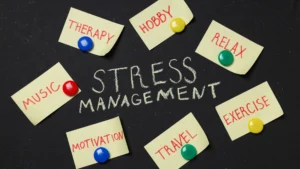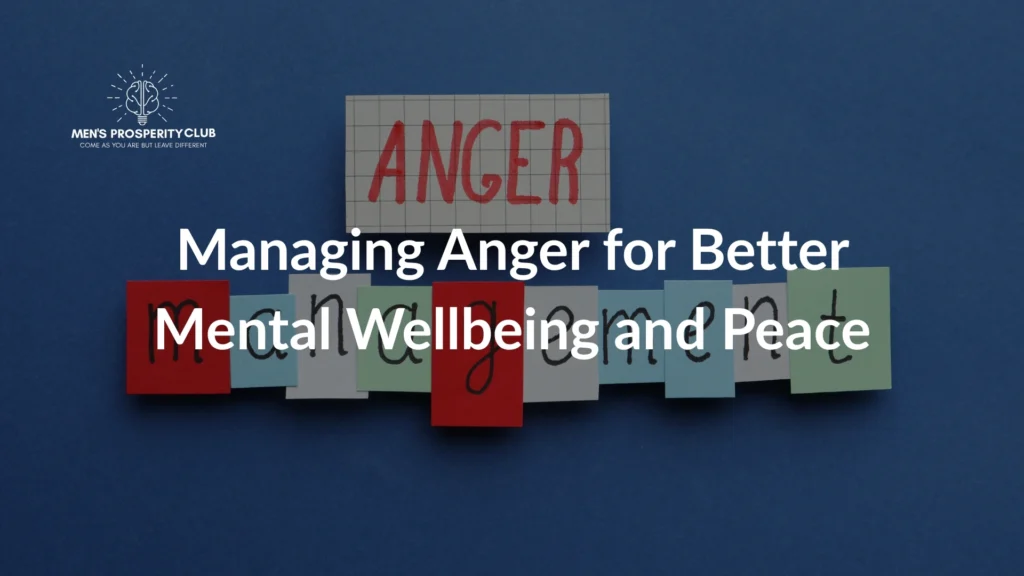Anger doesn’t make you weak. In fact, recognising when frustration becomes overwhelming shows incredible strength. Yet many men across the UK struggle silently with explosive emotions, believing they should simply “man up” and push through. This outdated mindset is costing lives, relationships, and careers.
Recent data reveals a troubling picture. Around 10% of people in the United Kingdom struggle with anger management difficulties at some point in their lives, whilst over 60% of office workers have experienced uncontrolled anger outbursts directed at colleagues, customers, or even inanimate objects. More concerning still, men in the UK are three times more likely than women to complete suicide. These numbers aren’t just statistics—they represent fathers, brothers, sons, and friends who deserve better support.
Why Men Experience Anger Differently
Society has long taught men that anger is the only “acceptable” emotion. Feeling sad? That’s a weakness. Anxious? Don’t show it. Hurt? Keep it hidden. This emotional straitjacket leaves anger as the sole outlet for a complex range of feelings. Consequently, what appears as rage often masks deeper pain, fear, or vulnerability.
The Mental Health Foundation points out that men may experience symptoms including irritability, sudden anger, increased loss of control, risk-taking and aggression. Rather than expressing distress through tears or conversation, many men default to frustration. This pattern becomes destructive when left unchecked, damaging relationships, careers, and physical health.
Understanding this difference is crucial. Your anger isn’t the problem—it’s the messenger. Learning to decode what your fury is actually telling you opens the door to genuine healing.
The Real Cost of Unmanaged Anger
Holding onto rage affects every aspect of your life. Physically, chronic anger triggers stress hormones that increase blood pressure, strain your heart, and weaken your immune system. You might notice tension headaches, digestive problems, or difficulty sleeping. Over time, these symptoms compound into serious health conditions.
Professionally, anger creates havoc in the workplace. 45% of people regularly lose their temper at work, jeopardising promotions, damaging reputations, and creating hostile work environments. One outburst can undo years of hard work. Meanwhile, suppressing anger doesn’t help either—it festers internally, leading to passive-aggressive behaviour or sudden explosions.
Relationships suffer most dramatically. Partners feel like they’re walking on eggshells, children learn unhealthy emotional patterns, and friendships deteriorate. The isolation that follows creates a vicious cycle: anger pushes people away, loneliness intensifies emotional pain, and the lack of support makes anger management even harder.

Recognising Your Triggers
Effective anger management starts with awareness. What situations consistently spark your fury? Perhaps it’s feeling disrespected, facing criticism, or encountering unexpected changes. Maybe financial stress, work pressure, or family responsibilities create a constant simmer that occasionally boils over.
Pay attention to your body’s warning signs. Does your jaw clench? Heart race? Fists tighten? These physical cues appear before conscious awareness kicks in. By recognising them early, you create a crucial window for intervention.
Similarly, notice your thought patterns. Do you catastrophise situations? Use absolute language like “always” or “never”? Jump to conclusions about others’ intentions? These thinking styles amplify anger unnecessarily. Challenging them reduces emotional intensity significantly.
Practical Strategies That Actually Work
Managing anger isn’t about suppression—it’s about expression in healthier ways. Start with the basics: regular exercise burns stress hormones whilst boosting mood-regulating chemicals. Even a brisk 20-minute walk transforms your emotional state.
Breathing techniques sound simple but work remarkably well. When anger surges, try box breathing: inhale for four counts, hold for four, exhale for four, hold for four. Repeat until you feel calmer. This activates your body’s relaxation response, counteracting the fight-or-flight reaction.
Creating space between trigger and response changes everything. When you feel anger building up, take a step back from the situation for a moment.Tell people you need five minutes to think. Use this time to walk, breathe, or simply let the initial intensity pass. You’ll return with clearer thinking and better self-control.
Communication skills matter enormously. Learn to use “I” statements rather than accusations: “I feel frustrated when plans change suddenly” works far better than “You always mess everything up.” This approach expresses your feelings without attacking others, making productive conversation possible.
Building Your Support Network
You don’t need to face this alone. The Men’s Prosperity Club (MPC) offers a community where men support each other through mental health challenges without judgement. Finding spaces where vulnerability is welcomed rather than mocked helps tremendously.
Professional support makes a real difference too. The NHS provides anger management resources and therapy options. Cognitive Behavioural Therapy (CBT) proves particularly effective, helping you identify and change thought patterns that fuel anger. Many men find that a few sessions with a trained therapist provides tools they use for life.
Consider joining an anger management course. The British Association of Anger Management offers programmes specifically designed for men, addressing the unique pressures and expectations you face. These courses teach practical skills whilst connecting you with others navigating similar struggles.
Lifestyle Changes That Support Emotional Regulation
Your daily habits significantly impact emotional stability. Sleep deprivation makes everyone more irritable—prioritise getting seven to nine hours nightly. Establish a consistent bedtime routine that doesn’t involve screens for the final hour.
Nutrition affects mood more than most realise. Blood sugar spikes and crashes create emotional volatility. Eating regular, balanced meals stabilises both energy and emotions. Limit caffeine and alcohol, which can intensify anxiety and lower your threshold for frustration.
Mindfulness practices help you observe emotions without being controlled by them. You don’t need to become a meditation expert—even five minutes daily of sitting quietly and noticing your thoughts makes a difference. Apps provide guided sessions if you’re unsure where to start.

When to Seek Professional Help
Sometimes anger stems from underlying mental health conditions like depression, anxiety, or trauma. If your anger feels overwhelming, leads to violence, or occurs alongside other concerning symptoms, professional assessment is essential.
Don’t wait until you’ve lost a job, relationship, or freedom to seek help. Early intervention prevents these devastating consequences. Remember, 72% of male prisoners experience two or more mental health problems—addressing anger before it escalates protects your future.
If you’ve ever thought about harming yourself or others, reach out immediately. Call the Samaritans on 116 123 or speak to your GP. These feelings indicate you need support urgently, and help is absolutely available.
Moving Forward With Confidence
Managing anger is a continuous journey, not a final goal.You’ll have setbacks—everyone does. What matters is that you keep trying, keep learning, and keep reaching out for support when needed.
Every small step forward counts. Maybe today you paused before reacting. Perhaps you opened up to a friend about your struggles. Or you’ve simply read this article, acknowledging that change is possible. These seemingly minor actions accumulate into major transformations.
The old narrative that “real men” don’t need help is not just wrong—it’s dangerous. Real strength lies in acknowledging vulnerability, seeking support, and doing the hard work of emotional growth. Your anger doesn’t define you. Your response to it does.
You deserve relationships built on trust, not fear, and to wake up free from the constant tension in your chest. You also deserve to model healthy emotional expressions for the next generation. Managing anger opens the door to all of this and more.
Take the first step today. Whether that means calling a friend, booking a GP appointment, or joining a support group like MPC, you’re moving in the right direction. Your future self will thank you for the courage you’re showing right now.




